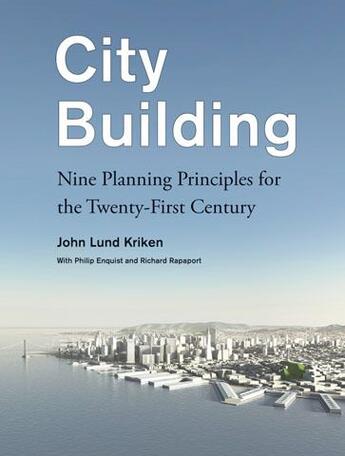Résumé:
"Good city building is not created by complex statistics, functional problem solving, or any particular decision-making process. Successful cities instead come from people advocating easily understood human values and principles that take into account the sensory, tactile, and sustainable... Voir plus
"Good city building is not created by complex statistics, functional problem solving, or any particular decision-making process. Successful cities instead come from people advocating easily understood human values and principles that take into account the sensory, tactile, and sustainable qualities of environment and design in relation to what is the best of human endeavor." -from the introduction to City Building In the twenty-first century the design of cities is more important than it has ever been. Far from being the cause of contemporary problems, cities can offer solutions to many of today's most serious concerns. Good city building counters the sprawl of suburbia with concentrated land use, replaces globalized design with regionally appropriate building types, contains infrastructure to a small footprint, and otherwise allows for livable, desirable communities. John Kriken of the award-winning planning firm Skidmore, Owings & Merrill has been at the forefront of urban planning for over forty years, and he brings both his wealth of experience and his great optimism for the future to City Building. In writing that both experienced designers and typical city-dwellers will enjoy, he illustrates a means for comprehensive problem solving rather than symptom-based problem solving.
City Building is organized into three parts. Part 1 examines the past and defines the current practice of city building, addressing its shortcomings and proposing a comprehensive framework for rethinking the approach to cities in the future. Part 2 translates this framework into nine best-practice principles that are common to successful, livable, urban environments: sustainability, accessibility, diversity, open space, compatibility, incentives, adaptability, density, and identity. These principles are illustrated in a global portfolio of city building projects, designed by Skidmore, Owings & Merrill, that show how best practices have been applied successfully-and sometimes not so. Part 3 makes the case that, far from being the problem, cities, properly organized, can be a mechanism for sensible, sustainable uses of increasingly scarce resources. The book concludes with a call for a national planning process and a comprehensive framework for settlement.
Donner votre avis














